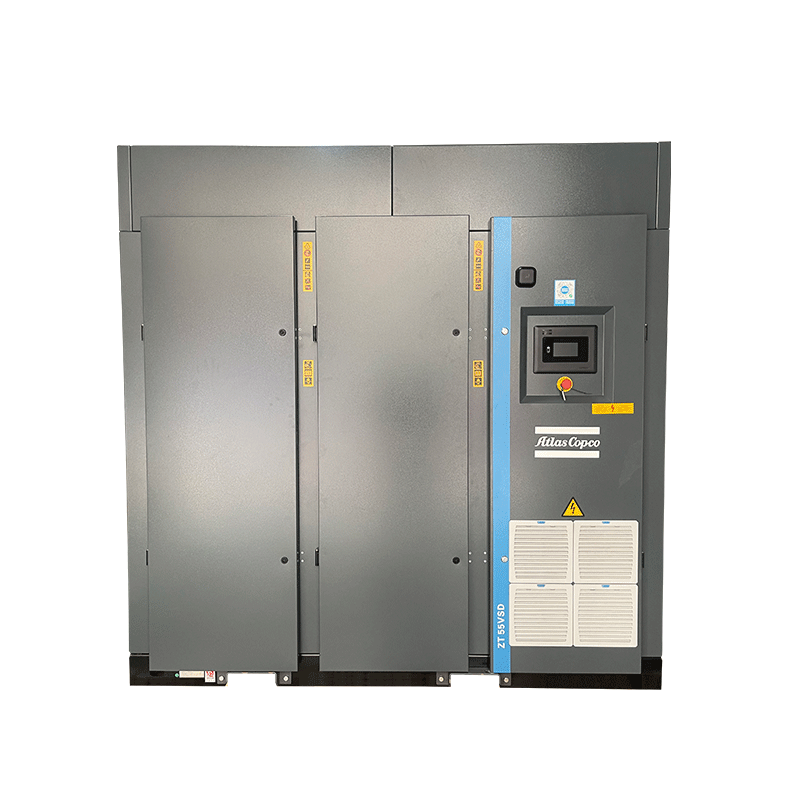What is the most efficient type of air compressor?
2024-06-11
The efficiency of an air compressor depends on various factors, including the application, required air pressure, flow rate, energy source, and operating conditions. Different types of air compressors have their own advantages and disadvantages in terms of efficiency. Here are some common types of air compressors and their efficiency characteristics:

1. Rotary Screw Compressors
- Efficiency: Rotary screw compressors are known for their high efficiency, especially in industrial applications where continuous operation is required.
- Performance: They deliver a steady supply of compressed air at a constant pressure, making them suitable for applications with consistent air demand.
- Energy Efficiency: Variable speed drive (VSD) models can adjust motor speed to match air demand, resulting in significant energy savings compared to fixed-speed models.
2. Reciprocating (Piston) Compressors
- Efficiency: Reciprocating compressors are generally less efficient than rotary screw compressors, especially at higher capacities.
- Performance: They are suitable for intermittent or fluctuating air demand applications.
- Energy Efficiency: Models equipped with energy-saving features such as two-stage compression and efficient motor designs can improve overall energy efficiency.
3. Centrifugal Compressors
- Efficiency: Centrifugal compressors are highly efficient for large-scale industrial applications with high flow rates and continuous operation.
- Performance: They excel in applications requiring high-pressure ratios and are commonly used in industries such as petrochemical, power generation, and refining.
- Energy Efficiency: While centrifugal compressors are inherently efficient, they require precise engineering and maintenance to maintain optimal performance.
4. Scroll Compressors
- Efficiency: Scroll compressors are known for their high energy efficiency, especially in small to medium-sized applications.
- Performance: They provide a smooth, pulsation-free airflow and are suitable for applications requiring low noise levels and compact design.
- Energy Efficiency: Scroll compressors typically have fewer moving parts, resulting in reduced friction and lower energy consumption.
Factors Affecting Efficiency
- Operating Conditions: Efficiency varies based on factors such as inlet air temperature, humidity, altitude, and ambient temperature.
- Maintenance: Regular maintenance, including cleaning filters, lubrication, and monitoring for leaks, is crucial for maintaining compressor efficiency.
- System Design: Proper system design, including sizing, piping layout, and air treatment components, can optimize efficiency and reduce energy consumption.
- Energy-saving Features: Compressors equipped with features such as variable speed drives, dual-control systems, and efficient motor designs can significantly improve energy efficiency.
Conclusion
The most efficient type of air compressor depends on the specific requirements of the application, including air demand, pressure, and operating conditions. While rotary screw compressors are often considered the most efficient overall, other factors such as initial cost, maintenance requirements, and system design should also be taken into consideration when selecting the appropriate compressor for a given application.


